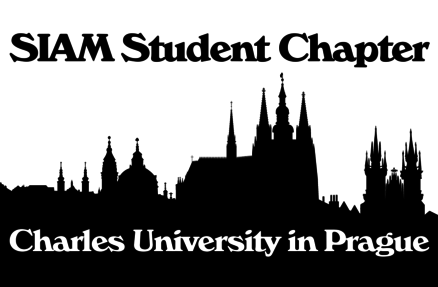Our Events - SIAM SC Seminar - Other Events
Mixed finite element formulation for data-driven approach to diffusion problems
Date: 14/12/2022 15:40 - 06/12/2022 16:50
Place: Hybrid event: lecture hall K1 & Zoom
We cordially invite you to our next SIAM SC seminar, which will be held in hybrid form (lecture hall K1 in Karlín and via Zoom). The talk will be given by Adriana Kuliková. Adriana is a PhD student at the University of Glasgow. She is a part of MoFEM team in the Glasgow Computational Engineering Centre and currently researches data-driven computational mechanics, solving finite element problems with material datasets instead of material models while obeying the conservation laws. Her background is in Civil Engineering which she studied in Swansea University.
Join Zoom Meeting
https://matfyz.zoom.us/j/94131864946?pwd=UkYzTG9rQkJZQlRTd25KRDk0akVHZz09
Meeting ID: 941 3186 4946
Passcode: 038328
Abstract: The standard approach to mechanical problems requires the solution to the mathematical equations that describe both the conservation laws and theconstitutive relationships, where the latter is obtained after fitting experimental data to a certain material model. Such models range from simple linear constitutive relationships with just one constant to more complex ones, such as unsaturated flow, hyperelasticity, brittle fracture of heterogeneous materials, requiring setting of multiple parameters.
In this work, we follow an alternative approach [1], and develop a Data-Driven (DD) framework for diffusion problems [2]. The conservation laws and boundary conditions are satisfied by means of the finite element method, while instead of a constitutive relationship we can use experimental data directly, thereby avoiding the need of fitting material model parameters.
Furthermore, derivation of a weaker mixed formulation for the DD approach allows for adaptive hp-refinement driven by a posteriori error indicators, which enables reduction of the finite element approximation errors with minimal increase of number of DOF/integration points for a given accuracy. However, material datasets are often polluted by noise originating from measurement errors and/or natural variance in the material behaviour. Therefore, we aim to provide the information about uncertainty of the results alongside the solution of the problem. The framework has been implemented in the open-source finite element software MoFEM [3].
[1] T. Kirchdoerfer at al, Comput Method Appl M, 2016
[2] A. Kulikova at al., UKACM 2021, 2021
[3] L. Kaczmarczyk et al., JOSS, 2020


